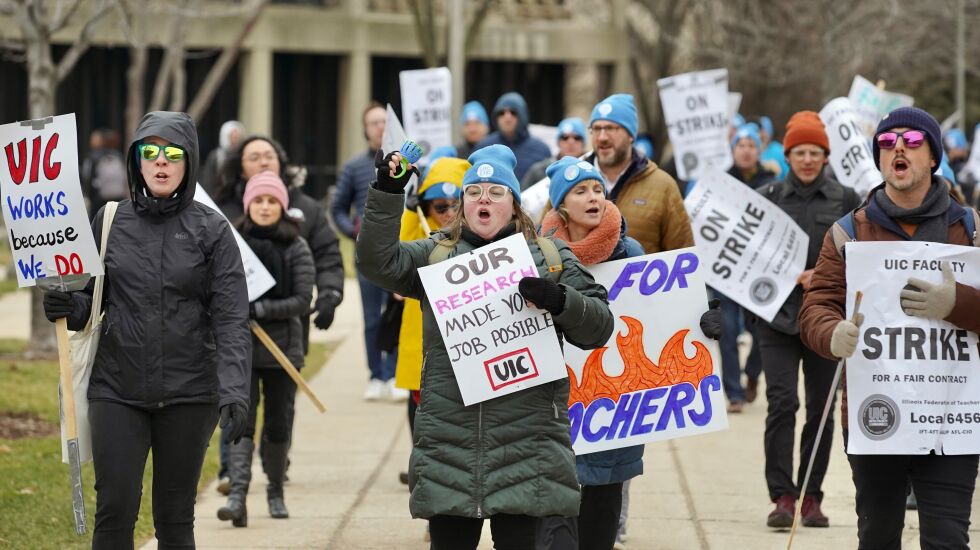
As the Sun-Times’ Nader Issa pointed out in his article on another University of Illinois Chicago faculty strike, since 2014 faculty at all three U. of I. campuses have each gone on strike, some multiple times, as have graduate student workers multiple times at UIC and U. of I. at Urbana-Champaign.
This is a shocking record. Unionized faculties across America seldom strike because they, just like U. of I. faculty, are very protective of their students.
What, then, is unique on these campuses?
SEND LETTERS TO: letters@suntimes.com. We want to hear from our readers. To be considered for publication, letters must include your full name, your neighborhood or hometown and a phone number for verification purposes. Letters should be a maximum of approximately 350 words.
I’m a retired professor of management with a Ph.D. specializing in labor relations, and I consulted on union negotiations with managers from over 200 organizations. I was a leader in forming the UIC faculty union, served on its bargaining team, and was involved with the faculty unions at UIC and the University of Illinois Springfield campuses.
The common factor in all of the negotiations is that the management teams are led by lawyers from the U. of I. Office of University Counsel. Instead of practicing collaborative negotiations, they always engage in hard, competitive bargaining. Collaborative negotiation seeks outcomes that are win-win for both parties, while competitive negotiation assumes that losses for one side result in gains for the other. I know for certain that my colleagues at UIC strongly prefer collaboration, which is also true of faculty elsewhere, because virtually all of the interests of faculty and administration are the same. But because the U. of I. management team uses competitive bargaining, the unions are forced to do the same in order to survive.
And the hard, competitive tactics used by U. of I. management inevitably lead to near-strikes and actual strikes before a contract is reached.
In the years before I retired, I tried many times in many different ways to convince top U. of I. management to employ negotiators skilled in collaborative bargaining. I hope this public letter will encourage its leaders to finally do so.
Darold T. Barnum, emeritus professor of management, UIC
Obedience for all?
Could someone please tell me how the sheriffs in this state can pick and choose which laws they will enforce, while I can’t pick and choose my laws? How many of these sheriffs are in possession of unlawful weapons right now? Is that why they refuse? If they don’t want to abide and enforce the legal laws of this state, why are they sheriffs at all?
If they refuse, they should lose their jobs. No question at all. I don’t feel safe when the sheriffs can prioritize their own will instead of the laws they are sworn to obey.
Obedience is for all, is it not? Or just for the poor?
Patricia R. Salecki, Summit







